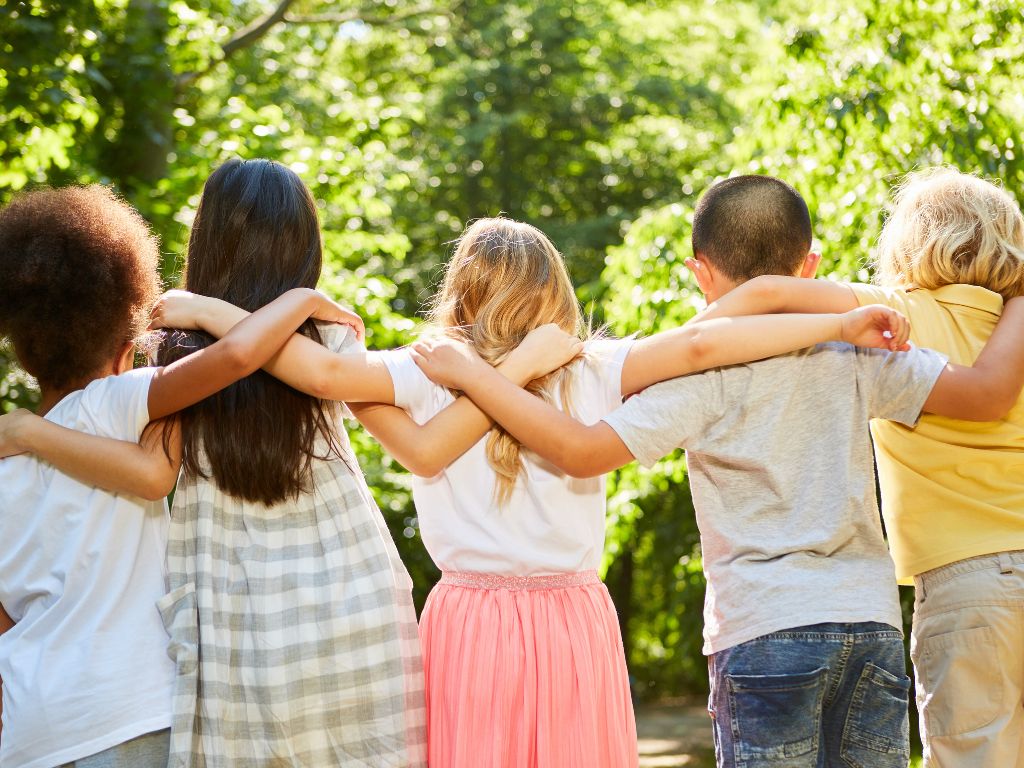10 Ways to Teach Young Children About Friendship & Social Skills
As parents, educators, and caregivers, we understand that the early years are foundational in shaping a child’s social and emotional development. Teaching young children about friendship and social skills not only helps them build meaningful relationships but also fosters empathy, cooperation, and resilience. These essential life skills are the cornerstones of future emotional well-being and success in both school and life.
Young children are naturally curious and eager to connect with others. By guiding them in understanding emotions, expressing themselves clearly, and treating others with kindness, we help them form bonds that can last a lifetime. Whether at home, in the classroom, or on the playground, every interaction can serve as a teachable moment.
According to the Harvard Making Caring Common Project, children who are taught empathy and perspective-taking at a young age are more likely to form meaningful relationships and build ethical decision-making skills. Social-emotional learning (SEL) is not just about managing behavior, it’s about helping children thrive as individuals and community members.
Here are ten practical and heart-led strategies to guide children in navigating the world of friendships:
- Model Positive Social Behaviors
Children learn best by watching the adults around them. Every interaction you model—apologizing sincerely, expressing gratitude, offering a helping hand, teaches a lesson in respect and kindness. Even conflict resolution can be a powerful teachable moment when modeled calmly.
- Use Stories to Illustrate Friendship Concepts
Books are one of the most powerful tools for social-emotional development. Stories like The Invisible Boy by Trudy Ludwig or Have You Filled a Bucket Today? by Carol McCloud help children explore emotions and social scenarios in relatable ways. After reading, discuss characters’ choices, feelings, and actions.
- Role-Play Social Situations
Imaginative play helps children practice real-life interactions. Use puppets or dolls to act out how to invite someone to play, solve a disagreement, or comfort a friend. Practicing words like, “Can I join in?” or “Please stop, I don’t like that,” gives kids usable language for peer interactions.
- Encourage Group Play and Collaborative Activities
Children develop important skills like sharing, turn-taking, and negotiating during collaborative play. Activities like building together or painting a mural as a group foster connection and cooperation. Encourage these experiences regularly to build teamwork and communication.
- Teach Empathy Through Emotion Recognition
According to Edutopia, helping children recognize emotions in themselves and others boosts empathy and social competence. Use emotion cards, mirrors, or facial expression games to teach children to label feelings and respond with compassion.
- Discuss the Qualities of a Good Friend
Start a conversation about what makes someone a good friend. Is it kindness? Sharing? Being a good listener? Create a friendship chart or wall together that lists these traits. Refer to it often when helping children reflect on their behavior and relationships.
- Provide Opportunities for Independent Conflict Resolution
Instead of solving every problem for them, coach children through small conflicts. Ask reflective questions like, “What happened?” or “What would help fix it?” With support, they’ll gain confidence in resolving issues with empathy and logic.
- Praise Positive Social Interactions
Point out and praise kind, inclusive behaviors when you see them. “I noticed you helped your friend clean up—that was thoughtful!” Use tools like a Kindness Jar to celebrate small wins and reinforce the joy in doing good for others.
- Create a Safe and Inclusive Environment
Foster an environment where every child feels welcome and valued. Use inclusive books and materials, celebrate diverse backgrounds, and speak up when exclusion or teasing occurs. When kindness is the norm, friendship blooms naturally.
- Be Patient and Supportive
Social learning is a process. Mistakes are expected and necessary. Support children with consistent encouragement, and guide them gently when things go wrong. Your presence becomes their safety net as they learn how to connect meaningfully.
Friendship isn’t just about playdates or sharing toys. It’s about empathy, understanding, and growing the confidence to connect with others in meaningful ways. By using stories, play, real-world modeling, and gentle guidance, we help children develop the social and emotional skills they’ll carry for life.
Let’s remember: every spilled block tower, every sandbox squabble, and every shared giggle is an opportunity. An opportunity to model, to teach, and to build a more connected, compassionate generation, one friendship at a time.
👉Explore the humanKIND Curriculum here.
Ready to bring meaningful SEL to your school, without adding more to your teachers’ plates?
👉 Book a free 30-minute consult with Cara Zelas here
